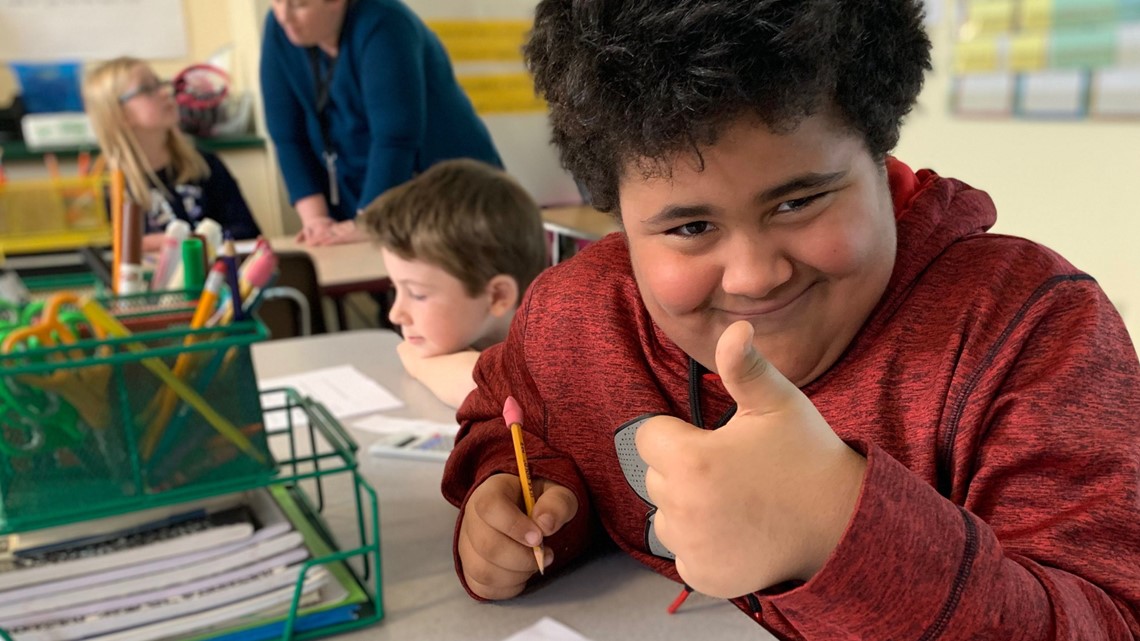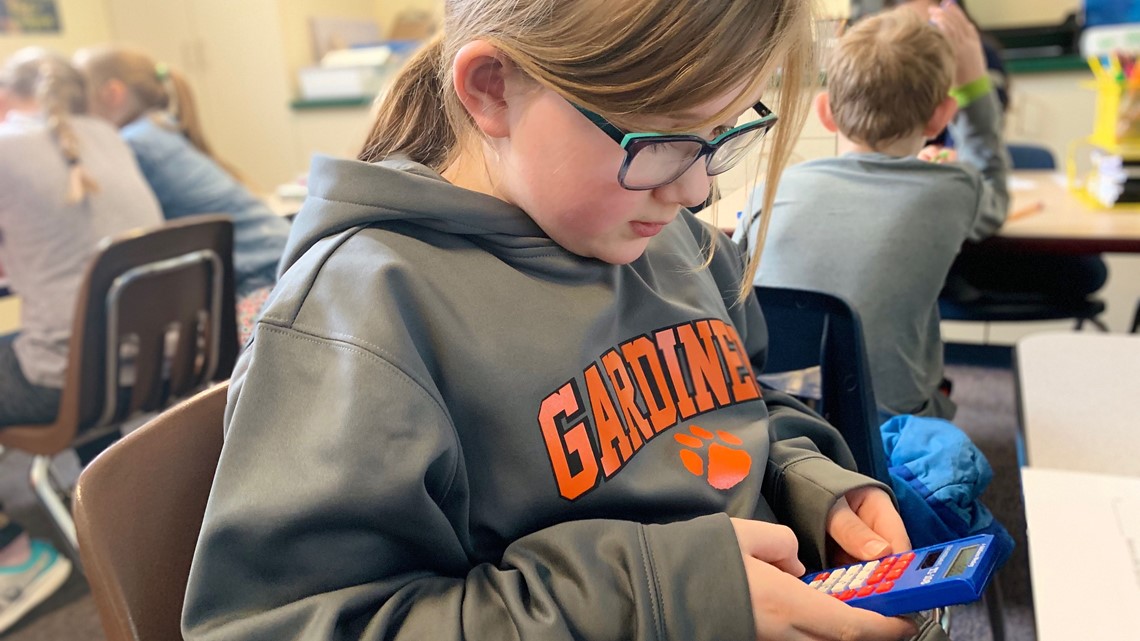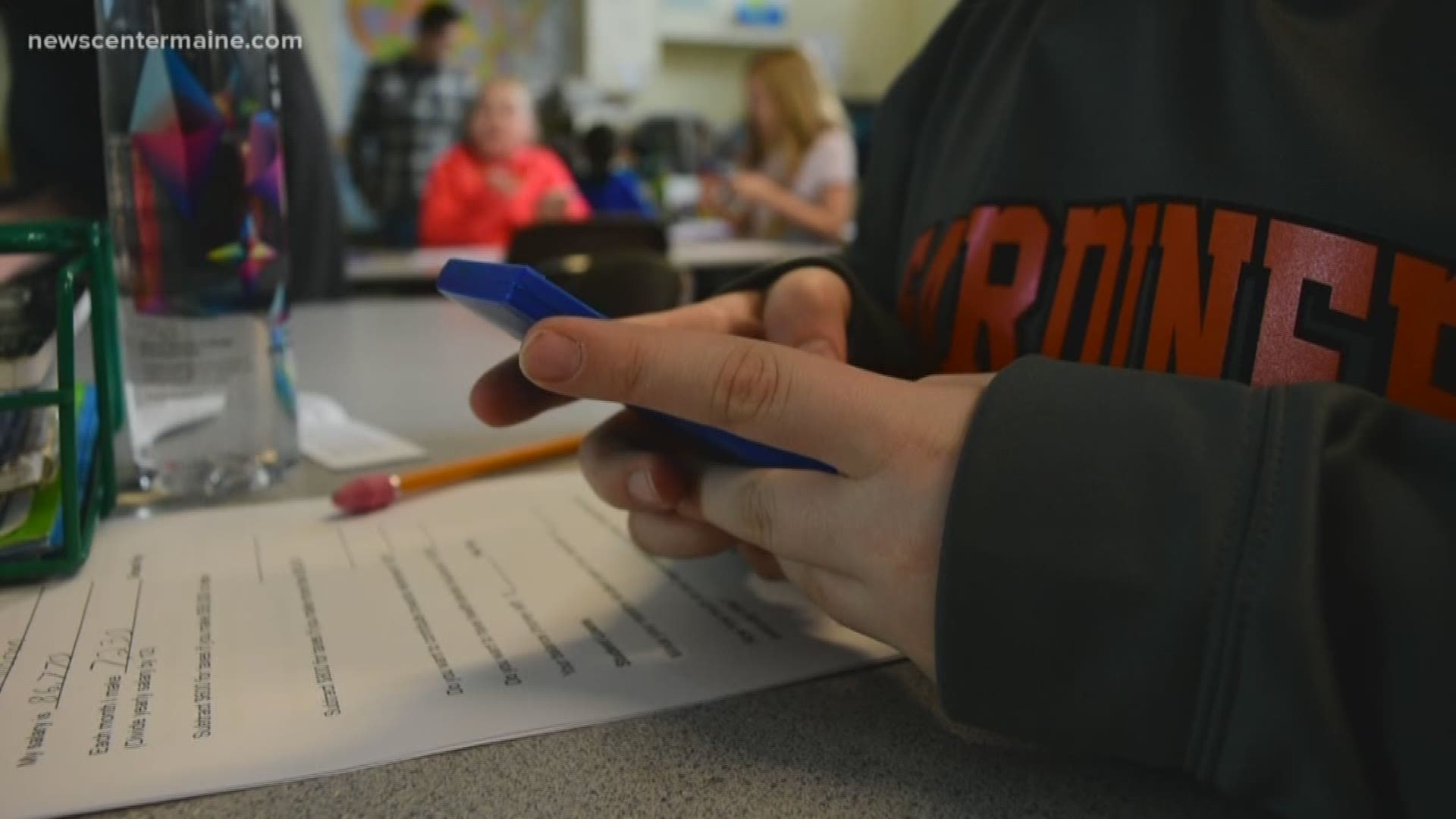AUGUSTA, Maine — Odds are you like so many others have made mistakes with money at some point in your life; maybe you still are. Most financial mistakes are made out of ignorance, and you're not alone — the average American is $38,000 in debt, according to a Northwestern Mutual report.
The state of Maine wants to end financial ignorance by stopping it before it even starts. Lawmakers recently passed a bill requiring all schools to teach Maine students about personal finances throughout their entire school careers. The bill awaits signature from Governor Mills before being law, but in some classrooms, the learning has already started.
I asked students in Gretchen Nickerson's fourth-grade class how much they think their parents spend on groceries a month.
Piper Frazer is not at all confident: "Err...maybe $500."
"It is usually like $100 because we eat fast," answers Dominic Webber, very confidently.
"I think my mom spends more than $500. I love to eat," says Julianna Curtis with a smile.
While these fourth-graders at Helem Thompson Elementary in West Gardiner might not understand all the particulars of a family budget they have been working on their own.
"A budget is basically estimating your income and its how much money you have and how much money you spend," explains Julianna.
So far Mrs. Nickerson's class has learned a lot this year about money. They started the school year like college grads, applying for classroom jobs. Jobs like IT specialists, table cleaners, furniture movers, paper pushers – they hand out all the papers – and newspaper staff for the classes monthly Nickerson News.


Students get paid for all the work they do as part of their classroom jobs. They also get paid for how well they do in class and how hard they are trying. But being a part of Mrs. Nickerson's class is not cheap.
Piper Frazer is the classroom banker. She collects a 5% tax from all students and rent for their seats every week in paper logs that keep track of each student's net worth. Students are fined for bad behavior or lacking school work.
"Then it narrows it down to their net pay, then that is how much they get," Piper explains to me.
Maine's House and Senate recently passed LD 283, titled "Resolve, Regarding Legislative Review of Portions of Chapter 132: Learning Results: Parameters for Essential Instruction, a Major Substantive Rule of the Department of Education."
Part of the bill will change the education standards for Social Studies and Science requiring Maine schools to teach personal finance from grades K-12.
"Through the years, the Department has heard from not only teachers, but also from legislators, about the importance of strengthening the teaching of personal finance. There is a growing call to help ensure that our youngest citizens have an understanding of how to approach their finances even before they leave high school. The Department has worked to ensure that the revised standards are explicit in the teaching of personal finance."
State Senator Matthew Pouliot (R-Kennebec) originally sponsored a stand-alone bill to add personal finance to Maine curriculums. The personal finance instruction piece has now been absorbed into the larger bill.
"We talk so much if you just go get your degree that is your pathway to success and I think we are all coming to realize that that is not necessarily true," says Pouliot.


The new standards will help teach students how to create a budget, how to save and plan for the future and how to understand and utilize credit, Pouliot says. "This is something that the K-12 system is lacking."
Pouliot thinks not understanding how to manage personal finances is a "root cause" for many of the problems he sees the government trying to help citizens with.
Back in West Gardiner, Julianna Curtis is reaping the rewards of earning her classroom cash: "I just recently today spent them on a vacation package for the green chairs. So I am sitting with my friend Reese."
Julianna paid 100 classroom dollars to buy what the class calls a "vacation package." She and her friend are sitting in plush green chairs instead of their designated seats for the whole day. Apparently, it is a big deal. And there are many other rewards students can purchase like extra recess time for the whole class or eating lunch with Mrs. Nickerson and a friend.
Mrs. Nickerson says her classroom economy is thriving. Students do not have to be reminded of their jobs, they work together and are motivated by the classroom dollars. The classroom economy has even become a way to keep kids in line during school.
Nickerson has been teaching budgeting and personal finances for the last five years after getting the idea from another teacher. She's excited that the bill to change education instruction only awaits Gov. Janet Mills' signature and if signed will take effect immediately.
“It’s going to help out all of us out in the future. It is going to help our society in the future," says Nickerson.
"I wanna be in the NFL," Dominic Webber tells me.
"I was talking about being a therapist," Piper says. She's deciding between a mental health therapist or a massage therapist but is still not sure. The good news is she has plenty of time to figure it out.
"I want to be a professional dancer," Julianna says.
Hopefully teaching the fundamentals of finance will help students in their futures, no matter what they decide to do.

